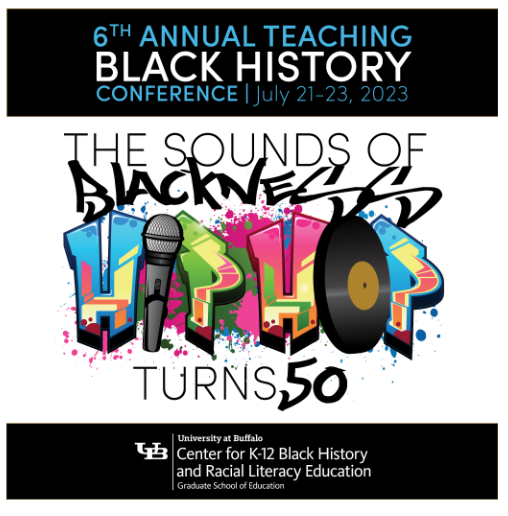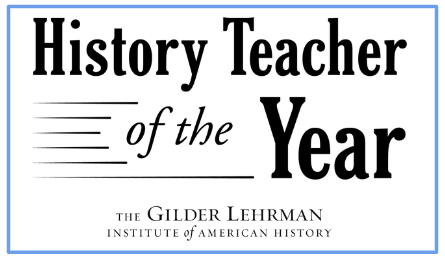I’ve rarely felt this excited to start a new school year. Despite headlines, I have experienced more enthusiasm about teaching truthful American History than I have ever seen before! Those that grab media attention by trying to stop the empowering work of teaching and learning about Black History do so in vain. They are a fledgling minority in the world of education and after this summer, I have new hope and drive to continue this work.
This summer, I attended the single greatest educational conference that has ever existed. It started with a moving sing along of “Lift Every Voice and Sing” followed immediately by a second sing along to Juvenile’s “Back that Azz Up.” Dr. LeGarrett King’s Teaching Black History Conference in Buffalo, NY is a can’t miss event. The conference was full of brilliant ideas from inspiring educators on how to center Black history, Black joy, and the power of using hip hop in your curriculum. One of the many standout sessions I attended was hosted by Philadelphia educator, Abigail Henry. Ms. Henry’s session was about a lesson she had created about policing policy through the story of rapper Meek Mill. Students will love this lesson. It ends with a thoughtful and powerful discussion weighing the pros and cons of different ideas for police reform. I plan on using it after period 9 wraps up in the spring. It is worth it to check out other resources from Henry! She was gracious enough to share the Meek Mill lesson for free. Henry also wrote a great summary of the conference which celebrated Hip Hop’s 50th Anniversary. I highly recommend checking out the conference next summer. (There is a virtual attendance option as well!)
This summer, I also attended a College Board APSI for my new venture into AP African American Studies. My school was granted a slot for pilot “round 2” before the course is fully launched next fall. There is so much energy and excitement surrounding this launch. I was able to speak with a few educators who were a part of the initial launch last year. These are among the most passionate and creative people that I have been able to interact with in our profession. I know there has been much debate surrounding this course, but I think this is an absolutely fantastic class and I can’t wait to dive in. I encourage everyone to start building enthusiasm for the course in your building! It will be open and available to all schools next year and there will be tons of curriculum ready for you to get started. Throughout the course of this year, I will be working on updating a few Antiracist APUSH lessons and making a second version of them that will fit the standards required for AP African American Studies course.
Also this summer, I was honored to be named Michigan's “History Teacher of the Year” by the Gilder Lehrman Institute of American History. This recognition is very meaningful as it comes from the leaders in our field. Surely, there is a lot of criticism for educators who teach the truth about systematic racism. However, this honor showed me that we can take heart when facing a skeptical school board or administration. The work we are doing in teaching truth and critically examining College Board curriculum and APUSH textbooks is on the side of authentic history and we have full backing of actual historians that cheer on our important work. Why do we teach the lessons that we do? Because we are HISTORY teachers so we teach history!
Finally, (Here come the resources) I also had another great experience at the College Board reading again this summer. I was on SAQ duty and was reminded once again that the SAQ is a skill that needs to be taught just like we scaffold the other essays. My biggest advice after reading thousands of SAQs in June:
Have students repeat the prompt. It sounds so simple and too formulaic but after 8+ days of reading, I experienced again and again that this practice grounded students and helped frame their chosen evidence in a way that was more likely to earn the point.
Practice identifying secondary source claims more than you think! Sometimes, I move past this too quickly to focus on more difficult skills but students really struggled with this simple concept. I will be adding more secondary source reading to my course this year and I’ll upload it to Antiracist APUSH. Here is a new one with an SAQ that I made after this year's read (5.10, Reconstruction, Secondary Source from Lerone Bennett Jr.)


